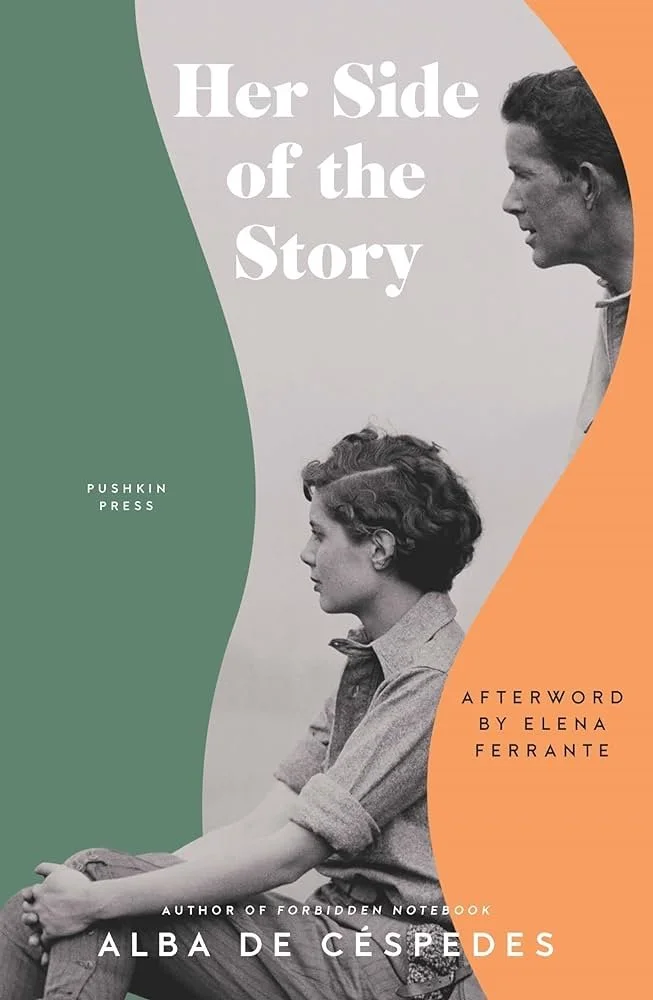Listen to Jean Rhys speaking about writing.
Welcome to #ReadingRhys, a week centred on reading and discussing the work of Jean Rhys, now considered one the greatest writers of the 20th century! You can read a little more about her here in these articles from The Guardian and The Paris Review.
As I’ve mentioned in previous posts, this week Jacqui (of JacquiWine’s Journal) and I have teamed up to coordinate discussions centred around Rhys’ writing and life. Having read much of Rhys’ work while I was at university, I’ve been eager to revisit her fascinating books which are distinct for their unique style and brutal honesty. Jacqui, Poppy Peacock (who writes about books at poppy peacock pens) and Margaret Reardon (another long-standing Rhys fan) and I will post about all of Jean Rhys’ major books over the course of the week. During her lifetime, Rhys published five novels: Quartet (1929); After Leaving Mr Mackenzie (1930); Voyage in the Dark (1934); Good Morning, Midnight (1939); and Wide Sargasso Sea (1966). She also wrote several short stories – a number of collections have been issued and are still available to buy secondhand if you’re willing to hunt around. There’s a series of letters too, plus Smile Please: An Unfinished Autobiography.
~~~~~~~~~~~~
How to join in
Ideally we’d love you to read something by Rhys (or a book connected to her work) and then to share your thoughts about it via one or more of the following routes:
• If you have a blog, you could write your own review or article about the book
• Alternatively, share your thoughts on GoodReads. We’ve set up a ‘Jean Rhys Reading Week’ Group on GoodReads with a discussion topic for each book and her life
• Tweet about it on Twitter using the hashtag #ReadingRhys
• Add your comments to other readers’/bloggers’ reviews/posts which will be going up throughout the week (see the below schedule)
You can post your reviews and comments at any time from 12th-18th September, it’s entirely up to you. Plus, we’ll be happy to continue to discuss all things Rhys in the weeks that follow the event, particularly if you run short of time over the next few days.
~~~~~~~~~~~~
What we’ll post about this week
To give you an idea of what each of us will be focusing on, here’s a schedule for the reviews/posts we are planning to issue during the week. These are the books we’ll be taking a lead on.
Monday 12th September
• Welcome to #ReadingRhys, plans for the week + After Leaving Mr Mackenzie – Jacqui (at JacquiWine’s Journal)
• Welcome to #ReadingRhys, plans for the week + Good Morning, Midnight – Eric (at Lonesome Reader)
Tuesday 13th
• Voyage in the Dark – Eric (at Lonesome Reader)
Wednesday 14th
• Tigers are Better-Looking (short stories) – Jacqui (at JacquiWine’s Journal)
Thursday 15th
• Wide Sargasso Sea – Eric (at Lonesome Reader)
• Quartet – Poppy (at poppy peacock pens)
Friday 16th
• An interview with a special guest – Jacqui (at JacquiWine’s Journal)
Saturday 17th
• Good Morning, Midnight – Margaret (at newedition.ca)
• Smile Please – Eric (at Lonesome Reader)
Sunday 18th
• Rhys’ Letters: 1931-66 – Poppy (at poppy peacock pens)
• The Left Bank (short stories) – Jacqui (at JacquiWine’s Journal)
Between the four of us, we’ll be taking responsibility for visiting your blogs, the relevant GoodReads threads and reading comments on Twitter etc. At the end of the week, we’ll pull together some brief summaries of everyone’s responses to the books with a view to posting these on our blogs and the GoodReads group area during w/c 19th September.
So that’s the plan for the week. You can post your reviews and comments at any time, and we’ll visit when we can. Do add this bannerto your own posts as and when they go up and feel free to add it your blog if you’re planning to participate. Please use the #ReadingRhys hashtag in any Twitter comms about the event.
We’re really looking forward to discussing Rhys’ work and we hope you will join us during the week. Please feel free to add a link to your post(s) in the comments below. In the meantime, if you have any particular thoughts or plans for the week, just let us know. You can also get in touch with us via Twitter. We tweet at @JacquiWine, @lonesomereader, @poppypeacock and @2daffylou.
~~~~~~~~~~~~
Win a special Jean Rhys Prize Bundle!
As luck would have it, Penguin have recently reissued Rhys’ novel Good Morning, Midnight as part of their brightly-coloured Pocket Penguins series. You can read the first chapter of this brilliant novel here. As a special incentive to join in #ReadingRhys week, Jacqui and I will select one lucky person who makes a significant contribution to our discussions over the week to win a special Jean Rhys Package (courtesy of Penguin)!





































